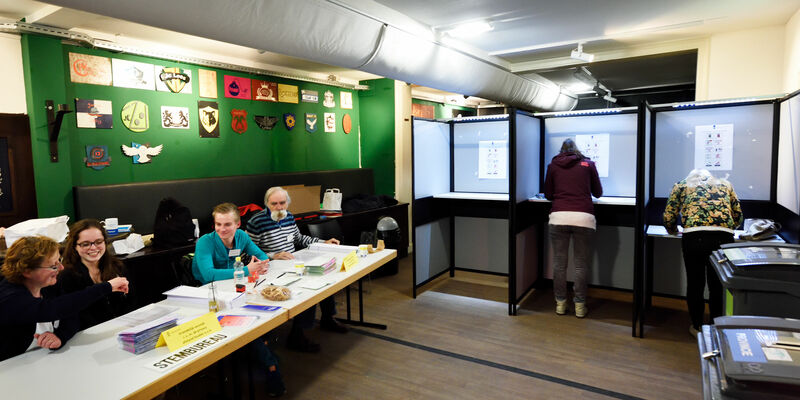
- Student
- 03/02/2021
From starting out to student debt: ISO launches online student voter guide
Do you know which political party you’ll be voting for in March? Student organization ISO has devised an online student voter guide that reveals what political parties think of the 'obstacle race' that characterizes student life nowadays.
Parliamentary elections are on the horizon. What do political parties believe should be done about the binding study recommendation? What remedy do they have for the shortage of student housing? Should the basic student grant be reinstated?
Every election brings with it a wide range of voter guides and online tools for navigating party manifestos. This year, the Dutch National Student Association (ISO) wants to offer some voter assistance too by setting out all the political standpoints for comparison.
Finish line
The ISO has structured its voter guide as an obstacle race, taking students over each hurdle in student life and providing details of where the various political parties stand on these issues. The guide begins by confronting student voters with hurdles such as 'program choice' and 'admission and selection' and ends at the finish line with the impact of accumulated student debt, for instance when applying for a mortgage.
Incidentally, it’s up to the students themselves to figure out which party they want to vote for. After completing the race, no tabulated results or 'best match' appears on the screen.
“But we do wish you luck in making your choice,” ISO Chair Dahran Çoban says. “After all, how you mark your ballot in the voting booth on March 17, will have a direct influence on your life as a student. At this election, several major issues are at stake.”
Full of holes
On some issues, all the parties have a standpoint, for example on the system of student loans. “That has really become a hot topic,” Çoban says.
But a number of other issues seem to have been overlooked completely. The ISO ploughed through all the party programs and noticed that not every party had something to say on an issue like compensation for the student loan generation. There are also lots of holes when it comes to student governance or admission and selection.
Çoban describes these omissions as nothing short of shocking. She takes digitization as an example. “An issue now more important than ever. But most of the party manifestos fail to even mention it.”
Pressure
Another example is student health and well-being. This widely discussed theme appears in a variety of party programs, Çoban observes. “But they come up with suggestions like appointing a confidentiality counsellor or pro-active signaling of problems. This makes me think: fair enough, but isn’t it up to the institutions to do that? What would you as a party do?”
The ISO wants to get into a dialogue with the political parties in the coming weeks about their lack of attention to certain key issues. Çoban calls on students to put pressure on the politicians they might want to vote for. “If you think it’s crazy that a party has not taken a standpoint on an issue that’s important to you, you really have to let them know.”
Discussion